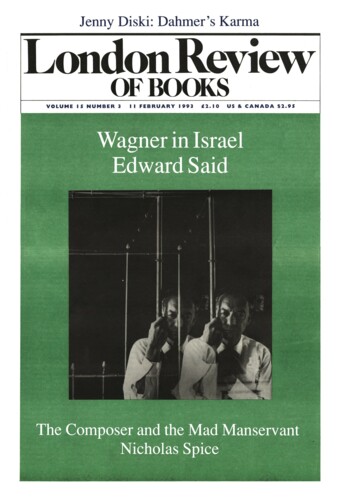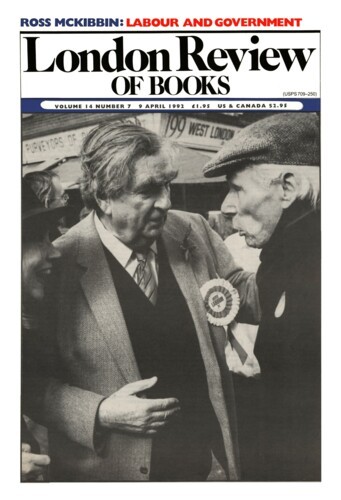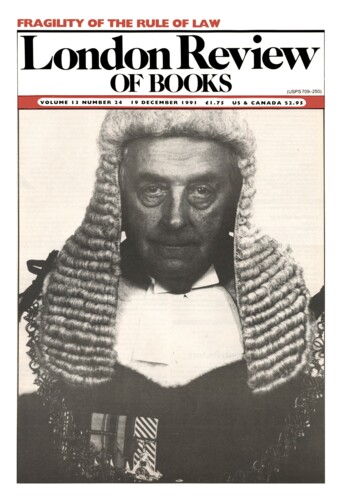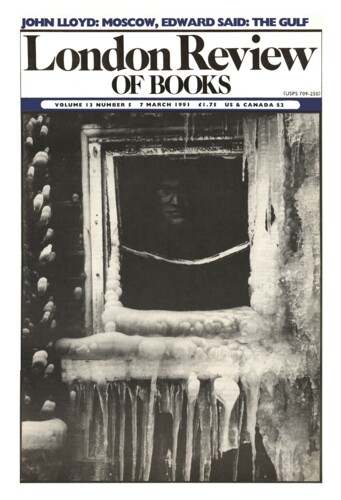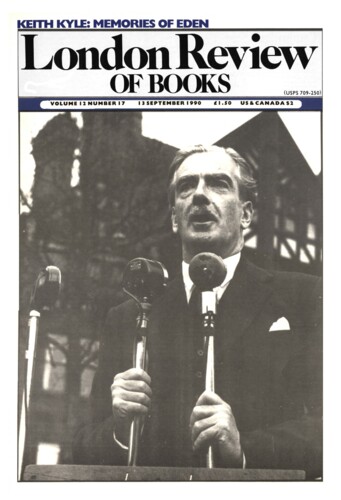The Importance of Being Unfaithful to Wagner
Edward Said, 11 February 1993
‘The bewildering variety of interests and standards in Wagner scholarship (or what passes for it) is congenitally resistant to study.’ Thus John Deathridge, the leading Wagner scholar of the English-speaking world, at the beginning of his chapter on Wagner research in the Wagner Handbook. It so learned and au courant a scholar as Deathridge is daunted by trying to make sense of Wagner research and interpretation, what about the rest of us? For not only was Wagner both contemptuous of history in general and a constant re-maker of his own history, but the enormous range of materials that have survived him (including, of course, his 15 Operas) has made almost any relatively straightforward approach to him impossible. Deathridge deepens the problem by saying that even a Gesamtforscher (‘a versatile scholar who can do everything’) would probably fail to adjudicate or negotiate the discrepancies: between the fantastic quantity of sources and Wagner’s shifting ideologies, for example, or between Wagner and Wagnerism, or between the music and the texts. The difficulties are dizzying and appear limitless. ‘A viable view of Wagner research,’ Deathridge concludes, ‘has more to do with the dynamics of history than with an absolute vision of how it should be.’
